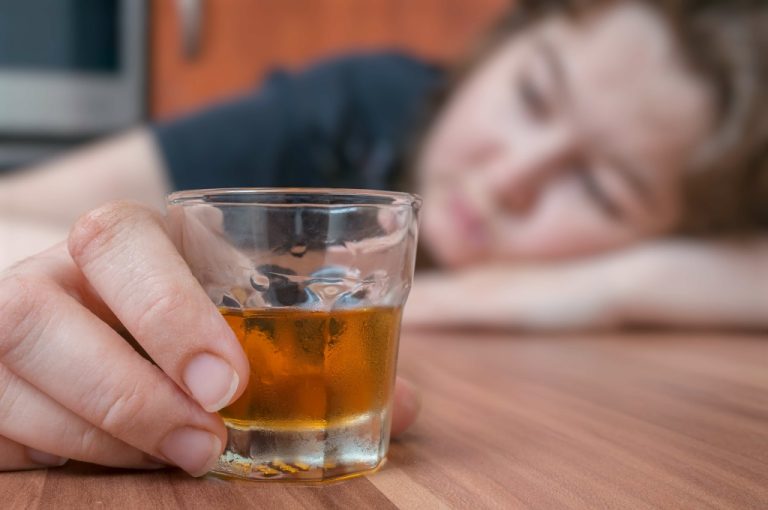Patients with schizophrenia living in the community usually would not fall into the persistently violent category, but they may present acutely with agitated and/or aggressive behavior. This may be due to acute decompensation secondary to covert or overt non-adherence with psychotropic medication therapy. Decompensation also may be due to a failure of the current medication regimen. The clinical features expected would be a worsening of psychotic symptoms and, possibly, command hallucinations, although the importance of the latter in violent behavior is in dispute. Studies report that 24-44% of aggressive acts committed by individuals with schizophrenia occur during an acute phase of the illness.
One retrospective study in a state hospital found that the number of violent episodes among inpatients with schizophrenia decreased after they began clozapine treatment. Similar results were found among 5 patients with schizophrenia in a specialized unit for severely aggressive patients and in 2 of 8 patients with brain injuries who exhibited chronic posttraumatic aggressive behavior. Some of the violent behavior occurring among psychiatric patients is attributable to comorbidity with substance use. Aggressive and violent behavior in patients can be precipitated by alcohol, cocaine, phencyclidine (PCP), or amphetamine intoxication. Inpatients can also be abusing illicit substances because access to drugs and alcohol, although difficult, is not impossible. Caffeine intoxication, water intoxication, antihistamine intoxication, and the ingestion of deodorants and aerosols have also been described in inpatients.
Alcohol-Related Aggression—Social and Neurobiological Factors
Typically, a BAC of more than 0.03 constitutes the beginning of intoxication. However, those with a built-up tolerance can have a higher concentration without feeling any effects. Alcohol is consumed in the form of ethyl alcohol, or ethanol, and is legal for adults in most countries. Alcohol is the most used and abused substance in the United States and one of the most abused worldwide. This article discusses some of the facts behind the stereotype of the “angry drunk” and explores the connection between anger and alcohol.
The full effects of alcohol consumption may take some time to become apparent. However, there are still six stages of intoxication that impact individual’s physical body, behaviors, and judgement as blood alcohol content increases. While these stages can be relatively predictable , it is important to note that an individual can move quickly between these stages, and is important to be able to recognize the warning https://ecosoberhouse.com/ signs and what they can mean for a teen’s health. An overarching theme appears to involve both risk factors that precipitate and increase the predisposition towards aggression as well as situations that actually elicit the aggression. For instance, early exposure to violence, toxin exposure, drug use, etc. may potentially be risk factors for aggression and predispose people to behaving aggressively.
Stage 6: Death
A review of the literature on the effects alcohol–aggression expectancies on intoxicated aggression is presented. Three specific questions about the relationship of alcohol expectancies to intoxicated aggression are examined; 1) do individuals believe alcohol causes people to become aggressive? It is concluded that people do hold the expectancy that drinking causes aggressive behavior; however, they tend to hold this belief more strongly about other people than they do about themselves. In addition, given the inconclusive evidence that intoxication leads to the mitigation of blame for bad behavior, it is difficult to accept the deviance–disavowal hypothesis as an explanation for intoxicated aggression. Further research into alcohol-related aggression in alcohol-dependent patients receiving treatment has shown that the degree of violence correlated to the level of alcohol consumption.

Another study of 249 heavy drinkers similarly found that alcohol intoxication predicted higher levels of IPV in those who reported low psychological flexibility (Grom et al., 2021). Some people may show effects quickly, while people who have a higher tolerance may have to take more of a substance in order to exhibit symptoms of in which stage of intoxication does an individual become aggressive intoxication. However, if you have a loved one who gets intoxicated, you should also know how to give short-term help to prevent the intoxication from progressing to the later stages that can cause a medical crisis. If someone were to have a BAC of .10, this would mean that one-tenth of 1% of the blood in their body is alcohol.
Lithium
At this stage of intoxication, the person’s behavior will be normal with no visible signs of intoxication, such as slurred speech or delayed reaction time. Cognitive training that focuses on improving the ability to delay gratification could help in this regard (20) and thus positively affect abstinence outcomes (21). With rare exceptions, the published studies of carbamazepine and aggressivity are not blinded and are uncontrolled for placebo effect. In addition, plasma levels of concomitant antipsychotics are not measured, leaving open the possibility for undetected pharmacokinetic interactions.
